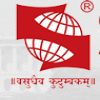MBA Innovation and Entrepreneurship Executive - Course, Fees, Eligibility, Top Colleges, Top Careers
Course Description
The MBA Innovation and Entrepreneurship Executive program is a specialized postgraduate degree designed for professionals who aspire to become successful entrepreneurs or innovators in the business world. This program focuses on developing a strong foundation in both business management principles and entrepreneurial skills. Students learn about the latest trends and strategies in innovation and entrepreneurship, including topics such as identifying market opportunities, developing business plans, managing risks, raising capital, and scaling startups.
Furthermore, the program often incorporates experiential learning elements such as workshops, guest lectures by successful entrepreneurs, and participation in business competitions to foster an entrepreneurial mindset and develop practical skills.
Students also have opportunities to network with industry professionals, mentors, and fellow entrepreneurs, enabling them to gain insights and build valuable connections in the business world. Upon graduation, students of the MBA Innovation and Entrepreneurship Executive program can pursue various career paths, such as starting their own ventures, joining startups, working in innovation-focused roles in established organizations, or becoming business consultants. This program equips students with the knowledge, skills, and mindset required to navigate the challenges and seize opportunities in the dynamic and ever-evolving world of entrepreneurship and innovation.
Eligibilty
- Bachelor's Degree: Applicants must have a Bachelor's degree in any discipline from a recognized university or institution.
- Work Experience: Most institutions require candidates to have a minimum of 2-5 years of relevant work experience. This requirement may vary between institutions.
- Entrance Exam: Candidates may need to qualify in entrance exams such as CAT (Common Admission Test), GMAT (Graduate Management Admission Test), or institution-specific entrance exams. The specific exam and minimum required scores may vary between institutions.
- Academic Performance: Candidates are generally required to have a minimum aggregate percentage in their Bachelor's degree. The minimum required percentage may vary between institutions.
- Personal Interview: Shortlisted candidates may be required to appear for a personal interview or group discussion as part of the selection process. The interview helps evaluate the candidate's communication skills, leadership potential, and fit for the program.
- English Language Proficiency: Candidates whose first language is not English may be required to demonstrate English language proficiency through tests such as TOEFL (Test of English as a Foreign Language) or IELTS (International English Language Testing System).
- Specific Requirements: Institutions may have additional requirements such as specific prerequisite coursework, industry experience, or entrepreneurial experience. These requirements may vary between institutions.
Colleges




